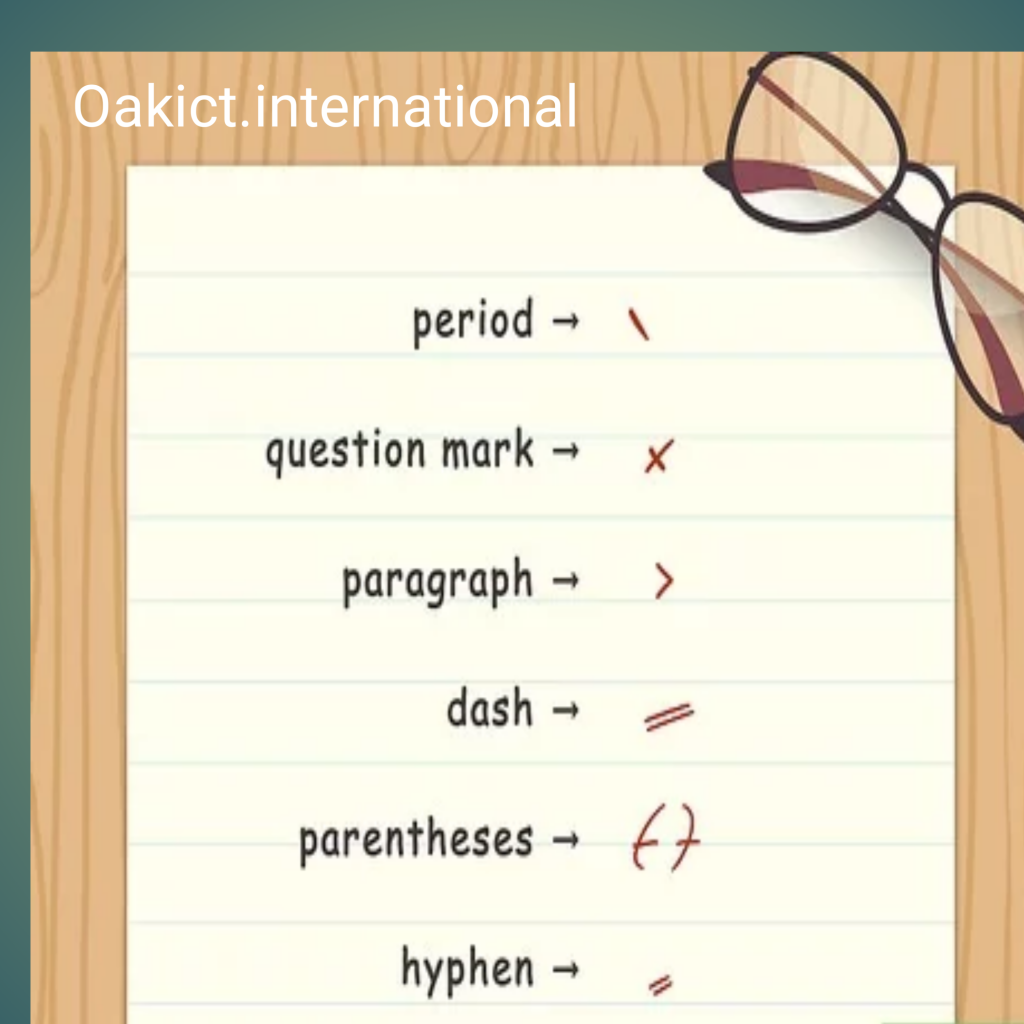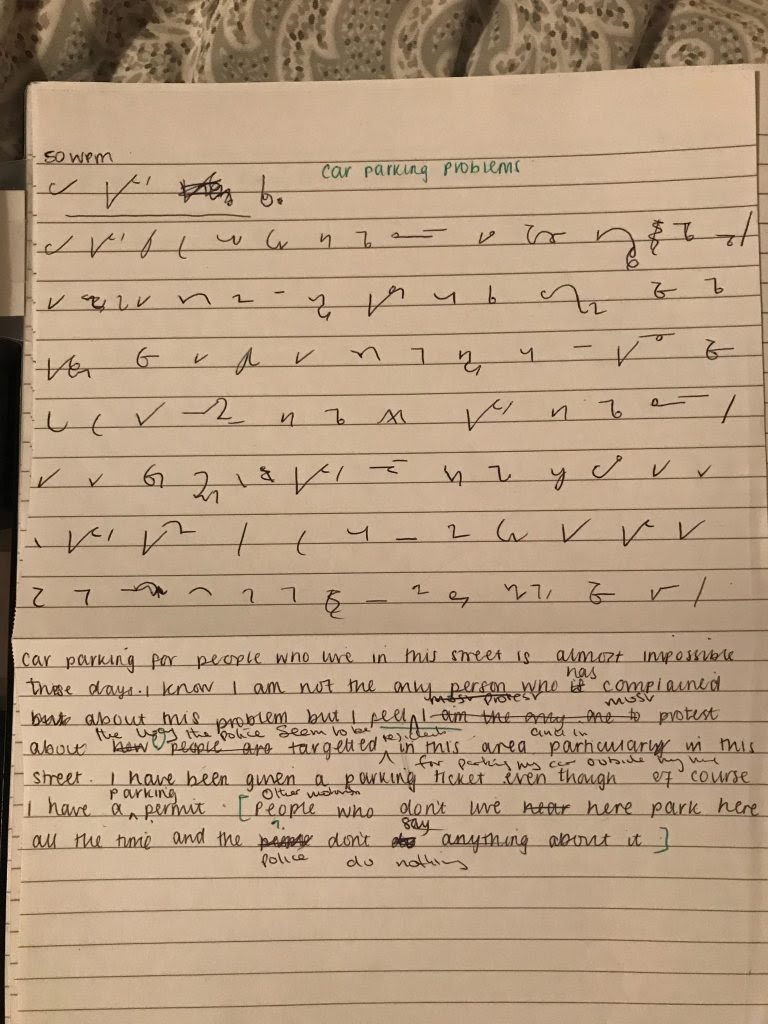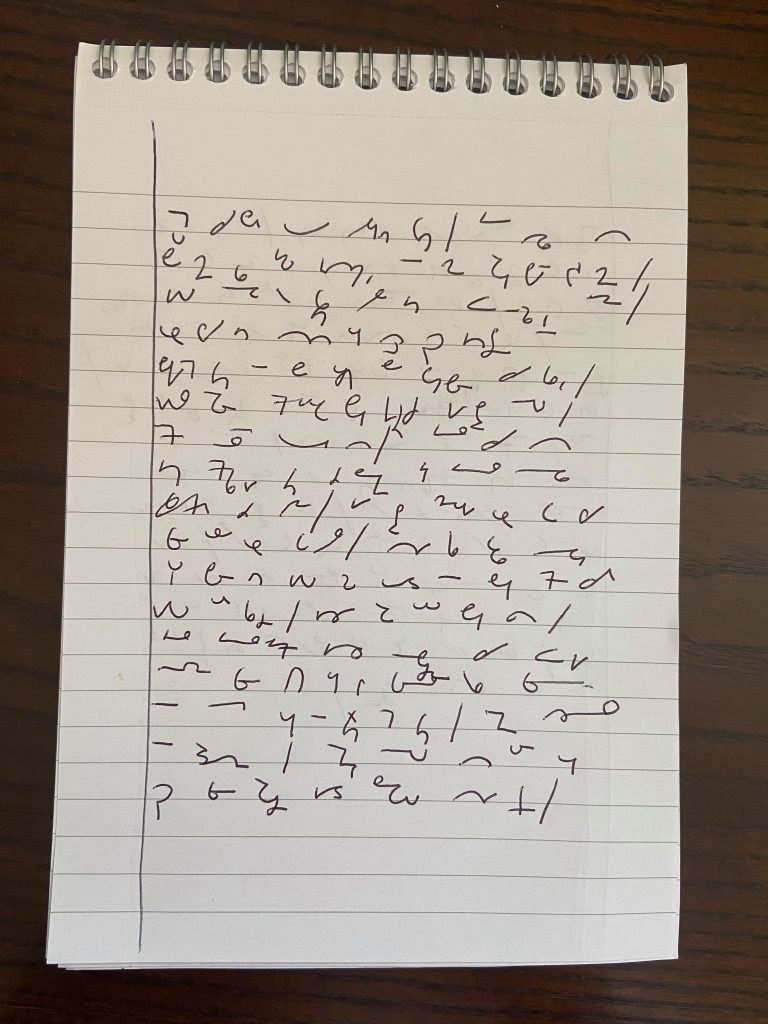
Shorthand; a word that strikes fear into novice and seasoned journalists alike. Most shorthand symbols look like a set of childish scribbles to the uninitiated. Yet shorthand remains one of the biggest assets when applying for work in the journalism world.
Who uses it, you may ask? In short, thousands. Thousands of journalists, PR professionals and court reporters rely on shorthand on a daily basis to do their work. Many claim shorthand is the fastest and most reliable means of getting multiple strands of information down on paper at high speeds.
But has shorthand become obsolete in a digitally evolving world? Is it accessible for all? Most importantly – do we need it?
What is shorthand?
Shorthand is a writing system, characterised by abbreviated symbols. There are various methods and styles, giving rise to numerous writing methods that increase the speed and brevity of writing. Shorthand is a writing system which allows users to reach high writing speeds.
On average, trainees can jot down notes significantly faster than longhand users, with top shorthand enthusiasts reaching speeds of up to 200 words per minute (WPM).
A vast array of systems have been used throughout the ages, from the Senate in ancient Rome to Samuel Pepys’s diaries in the 1600’s.

Is there a common form of shorthand?
The UK’s most popular shorthand system is Teeline. Teeline is based on a combination of outlines representing individual letters. To accelerate writing speeds, sounds are omitted in the script – typically vowels and silent letters.
Some word groupings have their own symbol. For example, “member of parliament” is shortened to two simple strokes: MP. “Thank you” is written as: THU. “Mother” is written with the letter “m”, with an elongated “t” to represent the “ther” sound.
Teeline is now the most popular system in the UK, and in the modern world, is used by secretaries to transcribe meetings and dictate letters. In the corners of official meetings, a PA will take detailed notes in a spiral notepad that only they can read. Meanwhile, shorthand is a common skill taught to court reporters, where electronics and recording equipment are strictly prohibited during court proceedings.
Definitely necessary in court, but if you don’t want to be a court/local democracy reporter there’s little point.
Sayde Scarlett
Is shorthand easy?
In short – no. For most people, shorthand is far from easy. Shorthand is one of the most common hurdles for any trainee journalist working on the field.
That’s not just because this writer is struggling to reach their 100WPM, of course. Ask any NCTJ trainee what was their biggest struggle. Most will say: “Shorthand”.
To pass the ‘NCTJ’, the qualification that is often required for journalism jobs, trainees must reach a minimum speed of 60 words per minute (WPM). A considerable feat for many, since the average person writes between 25 – 40WPM. Many journalists set their bar higher, and reach for the gold.
The benchmark for excellence – colloquially known as the ‘Gold Standard’ – is all subjects at grade C or above (60%), and the coveted 100WPM shorthand. According to The National Council for the Training of Journalists, reaching speeds of 100WPM is “indispensable for any court reporter, and a vital skill for journalists in all sectors who need an easily accessible and permanent note of every conversation in their working day.”
Had to get 100wpm for Westminster Press traineeship – got a bit sick of “tow the boat to the bay” (never very useful in Bradford) but it’s a fantastic skill invaluable not only in recording quickly and accurately but in implying you, um, know what you’re doing. I still use it.”
Lucy Ward
How do you pick up shorthand?
Picking up shorthand can be a tricky business. Unlike learning a language like Spanish or French, shorthand relies on muscular memory, co-ordination and pinpoint accuracy. Users must be familiar with the rules, or develop their own mechanisms to reach employable speeds. The process takes months for some, but for others, reaching the Gold Standard takes years.
One common issue across the shorthand learning system is that students often talk about hitting an ’80WPM plateau’. This is a common pitfall for many trainees, yet students are encouraged to persevere. In the words of ITV’s ‘Good Morning Britain’ presenter, Piers Morgan, trainee journalists must “work hard, play hard, and do your Teeline!”
Is shorthand dying?
Despite being mandatory in numerous professions, there are concerns that shorthand users are in short supply. According to the UK City and Guilds, there has been “a steady decrease” in the number of people taking shorthand courses over the past decade. There are many reasons why this may be the case, such as the introduction of technological solutions like voice recording and Otter.
The advantages of learning shorthand are long cited by enthusiasts. For one, many regional journalists claim shorthand is easier to type up in comparison to audio recordings. Another advantage is that, in terms of the law, it is illegal to make audio or video recordings of most proceedings in UK courts.
Still, many journalists working in broadcasting studios and magazines feel there is “no need to stress over shorthand”. Many accept graduates with lower speeds, such as the 60WPM and 80WPM qualifications. Furthermore, there are concerns shorthand creates barriers for disabled journalists wishing to enter the industry
“[Shorthand is] totally unnecessary and often used as a way to keep people from non-traditional backgrounds (e.g. self-taught or disabled journalists) out of courses/jobs. Now apps like Otter exist, you definitely don’t need it – I’ve survived and I can’t even hold a pen.”
Lucy Webster

Do journalists feel shorthand is necessary?
I was interested in finding out public attitudes towards the shorthand system. I received a large variety of responses. Here are just a selection.
For some, shorthand is an ‘essential’ skill – especially in the case of court reporters:
Richard Whitehouse
“It’s essential – I use it every single day. As a local democracy reporter I cover loads of council meetings and have to use it at every single one. Also vital if you ever find yourself covering court.”
Emily Gill
“Absolutely. I could not do my job as a Local Democracy Reporter without it. It’s also proven useful when speaking to people on the phones and in court and at inquests.”
Kevin Ward
“An ex-journalist & editor now, but my answer would be ‘it depends’. The days of regional papers sending reporters to court every day on a rota basis may be largely gone, but the fact remains you can’t properly cover courts/inquests or any event you can’t record without shorthand.”
For others, shorthand is used as a reference tool to get stories out, quickly:
Alex Turner
“Necessary? No. Valuable? Yes. I’ve got a phone interview early tomorrow with a CEO and I’ll then have about 10 minutes to finish the first version. Very difficult to do that without shorthand.”
Tony McDonough
“Yes, it’s far quicker than recording and transcribing an interview. Critical when you need to get a story out quickly.”
Heloise Mortmain
“I did the RSA Diploma for Personal Assistants in my gap year (very reluctantly, as first gen uni goer in my family, mum wanted me to have something to fall back on). Learned Teeline – I can still do it now, it’s like muscle memory. It amazes my kids which is satisfying.”
Other have found uses for shorthand inside and outside of the journalism world:
James Gray
“My sister was a journalist, got 100wpm, now a teacher. Very handy for making notes in class you don’t want people to read…shows an ability to apply yourself and learn a hard skill.”
Lydia Wilkins
“I do! It’s really useful – especially if you have a sensitive story. When I have interviewed people, a tape recorder can act as a mechanism, meaning they ‘clam up’. Shorthand still signals it’s an interview – but is not as intrusive.”
Teresa Green
“Passed my 100wpm exam 33 years ago and still use it now. Worked really hard to pass, including practising on Christmas Day after failing the 80wpm exam before the holidays. The 100wpm piece was about football and the hardest word was probably turnstiles!”
Jane Corscadden
“I think it’s a worthwhile skill to have. I’ve started to get into the habit of recording an interview and taking a brief shorthand note and have found it useful!”

Tamanna Rahman
“Absolutely worthwhile – it’s been a while since I learnt/used it properly so reading it back would be a struggle, and I rarely use it for whole interviews. But the shortcuts for whole words is massively helpful.”
Chris Gill
“Useful for notes you don’t want others to read … left a few notes on the train in fun before now!“
Yet shorthand is not without its limitations:
Robbie West
“Journalism courses that have an obsession with shorthand excludes dyslexic student who could do the job but can’t do shorthand. I have covered some of the biggest cases in the East of England for the BBC and have never used shorthand.”
Callum Warren
“Current student here – had to quit shorthand after spending whole semester trying as I physically couldn’t keep up. It was an interesting skill, but employers often misuse it “as a must have”, which hurts disabled journos. If you can do it then why not but don’t panic if you can’t.”
Alexander John Green
“No, shorthand hasn’t been easy! I’ve really struggled… it’s a miracle I’m at 70WPM. I hope to achieve 100wpm as I want to get the gold standard.”
Amy Booth
“There’s a massive downside to shorthand that nobody has mentioned so far: it’s essentially useless if you don’t interview in English. I’ve been a freelance reporter in South America for five years and 90%+ of my interviews are in Spanish.”
What are your thoughts on shorthand? Let us know in the comments.












You must be logged in to post a comment.